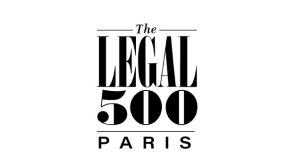The application of the European competition rules by the Commission and the national authorities is commonly referred to as “public enforcement”. Due to their direct effect, Articles 101 and 102 TFEU create rights and obligations for individuals that are enforceable by the Member States’ national courts. This concerns the implementation of the rules of competition in the private sphere and is referred to as “private enforcement”. Since 2001 (Case C-453-99 Courage and Crehan, Judgment of 20 September 2001, ECR p. I-6297), the Court of Justice has considered that under EU law any individual can claim compensation from such harm suffered. In practice however, most victims of abuses of dominant position or cartels are not always in a position to assert their right to compensation whether individually or collectively. The aims of the directive are thus to optimize the interaction between the public and private enforcement of competition law and to remove the obstacles to effective compensation – aims which are clearly to be welcomed.
- A proposal for private enforcement which does not compromise the effectiveness of either the leniency programs or settlement procedures.
The Commission’s central premise is that the right to compensation guaranteed by the EU can find itself at odds with the application of competition law by the public strand and that, in that case, the full effectiveness of public enforcement should be maintained at all costs, a specific example being where the victim of an infringement wishes to have access to information that a national competition authority has obtain within the context of a leniency program. That issue has become a source of legal uncertainty since the Pfleiderer ruling (Case C-360/09 Pfleiderer, Judgment of 14 June 2011, ECR p. I-5161) in which it was held that in the absence of any EU rules on the matter, it is for the national court to decide on the basis of national law and on a case-by-case basis whether to allow the disclosure of documents, including leniency documents, to the victims of an infringement.
Like the approach adopted in Directive 2004/48/EC on the enforcement of intellectual property rights, the proposed directive imposes limits on the disclosure of evidence by ensuring that in all Member States there is a minimum level of effective access to the evidence needed by claimants and/or defendants to prove their antitrust damages claim and/or a related defense. This is a welcome approach as it reduces the legal uncertainty generated by the Pfeifderer judgment.
- National courts will be able to order undertakings to disclose evidence when victims are asserting their claim to damages.
- Moreover, the finding by national competition authorities of an infringement will automatically constitute proof of the existence of the infringement before all the courts of the Member States.
The proposed directive avoids overly broad and costly disclosure obligations that could create undue burdens for the parties involved and risks of abuses.
Although not a question of discouraging leniency applications, we do feel that it would have been better to give greater support to the victims of competition infringements, rather than the perpetrators, even if they have repented. Indeed, experience shows that damages actions by victims of anticompetitive practices are excessively difficult in practice. A statistical study of recent French decisions shows that such actions are successful in less than half of cases, and that even in the event of success, awards are on average 10% lower than the amounts claimed. As private enforcement actions have the advantage of being brought by motivated private parties this can however act as a significant deterrent to potential infringers. Hindering such actions under the pretext of protecting companies guilty of anticompetitive practices because they have applied for leniency is a question of equity and procedural effectiveness which should force the issue in favor of much greater access to evidence for victims.
This is not the case now as with regard to the disclosure of evidence in a competition authority’s file, the proposal imposes absolute protection for statements made by the companies for the purposes of their leniency applications as well as for settlement procedures. Similarly, the proposal provides for temporary protection for documents that the parties have specifically prepared for the purpose of public enforcement proceedings until the competition authority has closed its proceedings (e.g. the party’s replies to the authority’s request for information) or that the competition authority has drawn up in the course of its proceedings (e.g. a Statement of Objections). Documents which fall outside those categories can be disclosed by court order at any time. However, such global disclosure requests for documents should normally be deemed by the court as disproportionate and not complying with the requesting party’s duty to specify categories of evidence as precisely and narrowly as possible.
- A proposal for a directive ensuring the effective exercise of the victim’s right to full compensation for harm caused by infringements
The purpose of the proposal is to guarantee the full effect of the prohibitions laid down in Articles 101 and 102 TFEU by ensuring compensation for all legal or natural persons– whether consumers, undertakings or public authorities – who are victims of infringements of those articles. The scope of application of the directive relates to both individual and collective damages actions for such infringements. As we have seen, the proposal for a directive does not require Member States to set up collective redress mechanisms for the purposes of implementing Articles 101 and 102.
The directive also proposes that the national rules concerning limitation periods for damages claims allow victims sufficient time (at least five years) to bring an action after they became aware of the infringement, the harm it caused and the identity of the infringer.
The proposed directive is based on joint and several liability of the perpetrators of the infringement but provides for a limitation of the liability of those benefiting from immunity from fines, which thankfully, is not absolute as immunity recipients remain fully liable as last-resort debtors if the injured parties are unable to obtain full compensation from the other infringers.
Injured parties must be able to seek compensation not only for the actual loss suffered (damnum emergens) but also for the gain of which they have been deprived (loss of profit or lucrum cessans). To assist victims of infringements of Article 101 TFUE in quantifying their damage, and taking into account that 9 out of 10 cartels indeed cause an illegal overcharge, the proposed directive provides for a rebuttable presumption with regard to the existence of harm resulting from a cartel. The directive also contains non-binding guidance – a Communication and a Practical Guide – on quantifying harm in actions for damages based on breaches of Article 101 or 102 TFEU to make it easier for national courts to quantify harm in such actions.
Lastly, with a view to setting up collective redress mechanisms, the Commission has put in place certain safeguards in order to avoid the excesses of US-style class actions too often used with the aim of bringing down law-abiding companies by seeking to damage their reputation or placing excessive financial burdens on them. For those reasons, its guiding principle is full compensation and the possibility to “opt-in” in order to: avoid lawsuits initiated by the instigator of a collective action, as in the US, in the name of all the claimants affected where when the latter have not expressly requested that such action be taken; to exclude punitive damages, contingency fees and pre-trial discovery.
Conclusion : Only very few victims of infringements of Articles 101 and 102 TFEU are currently able to obtain compensation. The reasons are many but are mainly due to the absence of suitable national rules governing damages actions or, on the contrary, to the disparity in national laws resulting in inequalities for both the victim and the party responsible for the anticompetitive practices, and to the legal insecurities specific to competition law. The unequal implementation of the right to damages guaranteed under EU law is likely to confer a competitive advantage on companies having infringed Article 101 or 102, but which do not have their registered office in one of the Member States with “favorable” legislation is or which do not operate in one of those Member States. On the other hand, this unequal situation discourages the exercise of the right of establishment and the right to supply of goods or perform services in Member States where the right to compensation implemented more effectively. These differences in the liability rules are damaging to competition and appreciably distort the proper performance of the internal market. It is therefore a very a good thing that the European institutions have finally sought to facilitate access to justice and allow victims of harm to obtain compensation including in cases of mass claims because of the violation of the competition rules. However, the proposal for a directive remains somewhat half-hearted in that it is overly protective of the interests of leniency recipients to the detriment of those of the victims of damage. A proper balance between “public enforcement” and “private enforcement” has not been achieved. “Public enforcement” still take has priority the basis of the premise which it is superior law to “private enforcement”. Furthermore, even though there has been no scientific study to demonstrate it, the theory is that if leniency applicants did not have high level of protection against damages actions, the number of leniency applications would fall considerably. Lastly, no measure has been provided to reduce the “public enforcement” sanction taking into account the possibility of a double sanction through the strengthening of “private enforcement”.

 MY ACCOUNT
MY ACCOUNT













